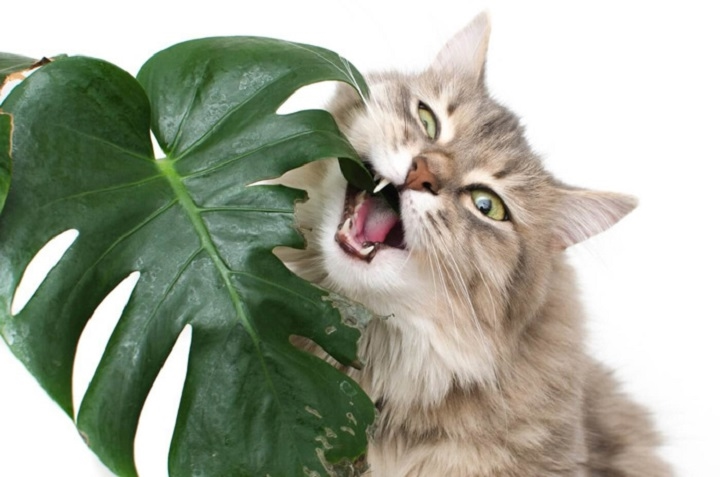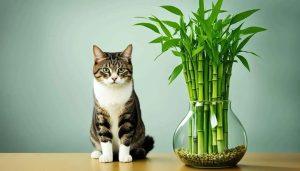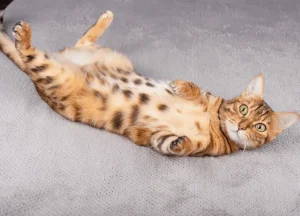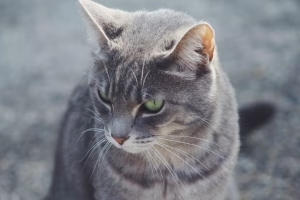Monstera plants, also known as Swiss cheese plants, are popular houseplants known for their striking appearance and easy-to-care-for nature. However, pet owners may have concerns about the safety of these plants around their cats. If you have a curious cat who enjoys nibbling on plants, you may be wondering: Are monstera toxic to cats?
We will explore the potential risks of monstera plants for cats, how to identify symptoms of poisoning, and what steps you can take to keep your feline friend safe while enjoying your beautiful monstera plant.
What Is Monstera and Why Is It Popular?
Monstera plants are tropical vines that are native to Central and South America. Known for their large, glossy leaves with natural holes, monstera plants have gained popularity as an indoor decoration. These plants thrive in indirect light and require minimal care, making them an ideal choice for both experienced and beginner plant enthusiasts.
Although monstera plants are a great addition to your home, their appeal may come with certain risks when you share your space with cats. While they are non-toxic to humans, their potential danger to pets, particularly cats, cannot be ignored.
Are Monstera Toxic to Cats?
Yes, monstera plants are toxic to cats. The primary concern with monstera plants is the presence of calcium oxalate crystals. These crystals are found in various parts of the plant, including the leaves and stems. When ingested, calcium oxalate crystals can cause irritation and discomfort to cats.
Cats are naturally curious animals and may chew on plants, especially if they are within their reach. If a cat consumes a portion of a monstera plant, it can lead to a variety of symptoms, ranging from mild irritation to more serious health issues.
Symptoms of Monstera Toxicity in Cats
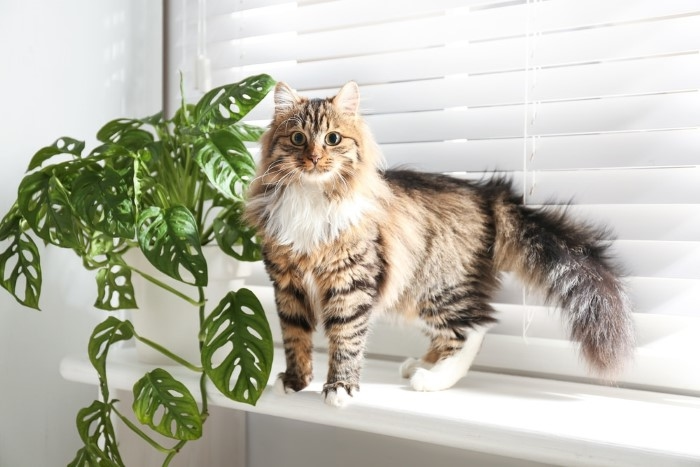
If your cat has ingested a part of a monstera plant, it is important to recognize the signs of poisoning. Symptoms of monstera toxicity in cats typically include:
Oral Irritation
- Drooling
- Pawing at the mouth
- Swelling or irritation of the mouth and lips
- Difficulty swallowing
Gastrointestinal Issues
- Vomiting
- Diarrhea
- Lack of appetite
- Abdominal pain
Behavioral Changes
- Lethargy
- Decreased activity levels
- Loss of interest in food or water
In some cases, the symptoms may be mild and resolve on their own after a short period. However, if your cat is showing more severe symptoms or if you are unsure whether they have ingested any part of the plant, it is essential to contact your veterinarian immediately for advice and treatment.
How to Prevent Monstera Poisoning in Cats
As a pet owner, you can take several preventive measures to keep your cat safe from monstera toxicity:
Place Plants Out of Reach
The most effective way to prevent your cat from ingesting monstera is by placing the plant in an area that is inaccessible to your pet. Keep the plant on high shelves, in hanging baskets, or in rooms that your cat cannot access.
Train Your Cat
If your cat is particularly prone to chewing on plants, consider using positive reinforcement techniques to train them not to interact with the plant. You can reward your cat for staying away from the monstera or any other toxic plants in your home.
Use Deterrents
Certain scents, such as citrus or vinegar, may help deter cats from chewing on plants. You can try spraying the monstera plant with a pet-safe deterrent to discourage your cat from nibbling on it.
Opt for Pet-Safe Plants
If you are concerned about the safety of your cat and still want to decorate with plants, consider choosing pet-safe alternatives. Plants such as spider plants, Boston ferns, and cat grass are non-toxic and safe for cats to interact with.
What to Do if Your Cat Eats Monstera
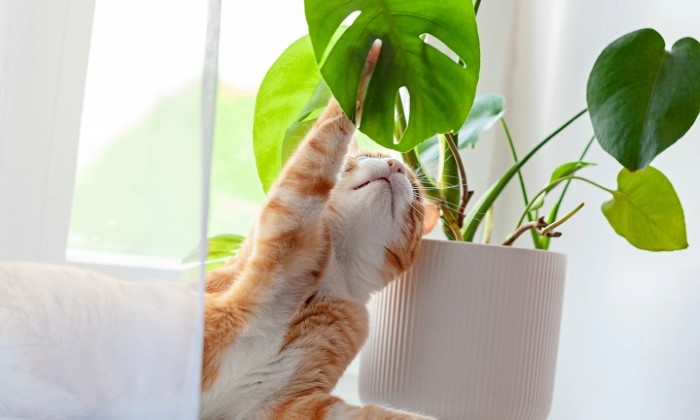
If your cat eats part of a monstera plant, it is essential to take immediate action. Here are the steps you should follow:
Assess the Situation
First, determine how much of the plant your cat has consumed. If they have only ingested a small amount, it may result in mild symptoms. However, larger quantities or a more serious reaction require immediate veterinary attention.
Contact Your Veterinarian
Reach out to your veterinarian or an emergency pet clinic as soon as possible. They can provide guidance on whether you need to bring your cat in for treatment or if the symptoms can be managed at home.
Follow Veterinary Advice
Your vet may recommend monitoring your cat at home if the symptoms are mild. In more severe cases, they may suggest inducing vomiting or administering activated charcoal to help prevent further absorption of toxins. In rare cases, hospitalization and supportive care may be required.
Can Monstera Cause Long-Term Damage to Cats?
Fortunately, in most cases, the symptoms of monstera toxicity in cats are temporary and resolve with appropriate care. If your cat is treated promptly and receives supportive care, they should recover without any long-term damage.
However, if left untreated or if a cat ingests a large amount of the plant, there could be more significant health risks, including severe dehydration, electrolyte imbalances, and potential organ damage. It is always best to err on the side of caution and consult your veterinarian when you suspect that your cat has ingested a toxic plant.
FAQs About Monstera and Cats
Are monstera plants safe for all pets?
Monstera plants are toxic to cats, dogs, and other pets. It is best to keep them out of reach to prevent accidental ingestion.
Can a cat die from eating a monstera plant?
While the toxicity of monstera is typically not life-threatening, large quantities ingested can cause severe symptoms and complications. Immediate veterinary care is important to prevent any long-term harm.
What should I do if my cat eats a monstera leaf?
If your cat eats a monstera leaf, observe for symptoms like drooling, vomiting, or oral irritation. Contact your vet for advice.
How can I stop my cat from eating my monstera plant?
Place the plant in an area that is inaccessible to your cat or use deterrents such as citrus-scented sprays to keep them away from the plant.
Are there any non-toxic plants I can keep with my cat?
Yes, several pet-safe plants like spider plants, cat grass, and Boston ferns are great alternatives to monstera.
Monstera plants, while beautiful and easy to care for, pose a risk to cats due to their toxicity. If ingested, monstera plants can cause oral irritation, gastrointestinal issues, and other symptoms that require veterinary attention. It is important to keep your plants out of your cat’s reach, use deterrents, and opt for pet-safe plants whenever possible. If your cat does consume any part of a monstera plant, promptly contact your veterinarian to ensure they receive the appropriate care.

